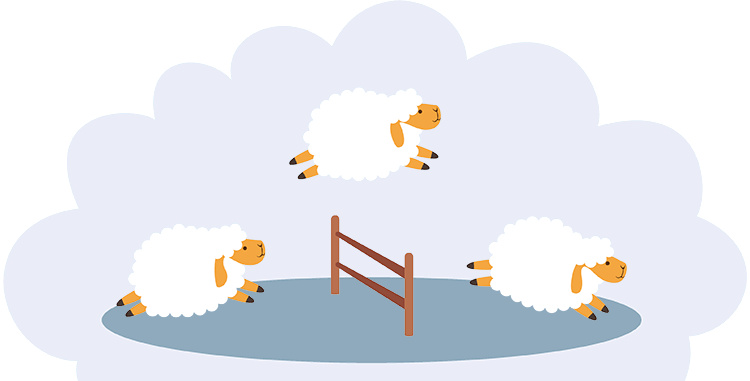Stress is the main trigger for insomnia
About 30% of the world’s population suffers from various forms of insomnia. The causes of sleep problems are numerous – overwork, chronic illness, stress. Obsessive anxious thoughts prevent a person from relaxing and falling asleep, and also cause nightmares.
Stress negatively affects your sleep patterns
A good night’s sleep helps the body recover and prepare it for the next day at work, helping to cope with stress and depression.
Stress reduces the ability to sleep deeply, which we need to recharge our bodies. Its smaller amount significantly affects our mental abilities, as well as the process of learning and processing new information. At the same time, chronic stress leads to sleep disturbance, and insomnia itself is a factor that can also provoke stress. A vicious circle is formed – a person does not sleep well due to anxiety, and lack of sleep causes stress.
Constant stress builds up over the course of the day and reaches its maximum in the evening. And when a person goes to bed, he does not stop thinking about his problems, he cannot relax and fall asleep.
When fatigue still prevails and a person falls asleep, disturbing thoughts remain. They turn into obsessive, unpleasant dreams, and sometimes nightmares. Because of them, a person wakes up all the time at night, and then again cannot fall asleep.
Instead of switching to a different mode of operation, the brain continues to replay the stressful situation. Insomnia affects all body functions, so a person needs to pay attention to sleep problems in time and take measures to eliminate them.
Sleep hygiene
Insomnia can lead to physical and mental health problems. Cardiovascular diseases are formed, digestion is disturbed, neuroses develop. To prevent this, it is necessary to deal with stress in a timely manner and maintain sleep hygiene.
How to properly prepare for sleep
Various relaxation techniques will help to fall asleep with insomnia, and the main aspect is the elimination of stress. But not everyone can do this, since stress factors in the modern world are present everywhere. A person can only reconsider his attitude towards them so that they cease to be stressful factors.
To fall asleep with insomnia, you need to properly prepare for sleep. The training includes:
completing work on time – no need to overwork if it leads to stress
two hours before bedtime, eat a light dinner – vegetables, fish, dietary meat
take a short walk in the fresh air an hour before going to bed
refuse to watch TV, news on the Internet in the evenings
not playing games on your computer or phone
ventilate the bedroom, prepare a comfortable bed
drink a glass of warm milk with honey
take a warm bath with lemon balm extract
It is recommended to go to bed no later than 11 pm. If you lie down at this time, in the morning it is easy to wake up at 6-7 o’clock. But everyone’s biorhythms are different, so you need to work out for yourself the optimal mode of falling asleep and waking up.
Specialist help
Not always a person can cope with their problems on their own. Insomnia may require medical attention as it is also a serious medical condition. Doctors who diagnose and treat insomnia are somnologists . They can be found in major medical centers.
In addition to a somnologist , psychologists or neurologists can help with sleep disorders. The task of these specialists is the diagnosis and treatment of depression, neurosis, anxiety obsessive states. They do not directly solve the problem of insomnia , but identify its cause. If necessary, the doctor prescribes drugs to help relieve anxiety.
Folk remedies
It is undesirable to get carried away with folk remedies for the treatment of insomnia; they can be used only as an auxiliary component of treatment.
Safe folk remedies to help you fall asleep:
soothing herbal – lemon balm, hops, chamomile
warm milk with honey
bath with a decoction of chamomile
a bag of scented herbs under the pillow
If the use of folk remedies does not have an effect, you should not delay visiting a doctor.
People who often experience constant stress may suffer from insomnia: they have difficulty falling asleep, often wake up at night. Because of this, there is a high risk of physical and psychological health problems affecting the quality of life. Relaxation techniques will help fight stress – breathing exercises, walks, soothing teas. Also, it is important to maintain sleep hygiene – ventilate the bedroom, walk before bed and not eat at night. If you still cannot fall asleep, you should contact a specialist who will help you choose the right drug for the treatment of transient sleep disorders.

